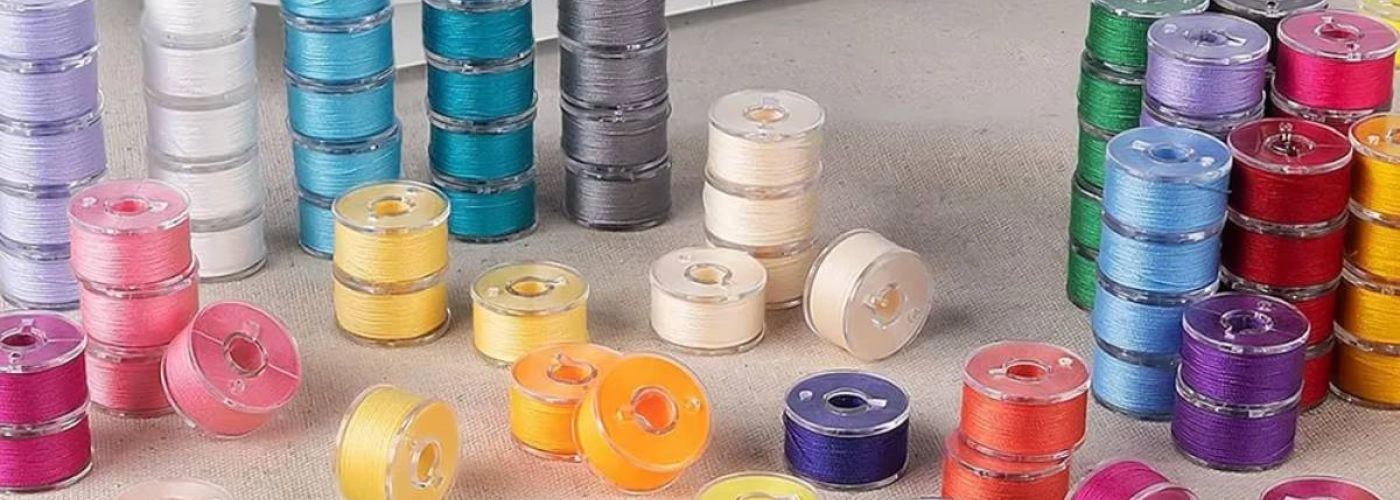
Best Thread for Singer Sewing Machine: Top Picks for Every Project
Looking for the best thread for your Singer sewing machine? This guide breaks down the top thread choices for the Singer sewing machine to match your project needs, ensuring optimal performance and high-quality results. Whether you’re working with heavy-duty fabrics or delicate materials, find the perfect thread for Singer sewing machine type to achieve seamless, durable, and elegant finishes.
Key Takeaways
-
Selecting the right thread type and size is critical for achieving high-quality stitching on Singer sewing machines.
-
Specialty threads, such as heavy-duty, metallic, and nylon, enhance project quality and cater to unique sewing needs.
-
Regular maintenance, proper needle-thread matching, and optimal storage conditions are essential for maximizing thread performance and longevity.
Choosing the Right Thread for Your Singer Sewing Machine
Selecting the right thread for your Singer sewing machine is a game-changer for achieving high-quality stitching and project success. The thread type and size play a significant role in the durability and appearance of your sewing projects. Using the correct thread type can enhance the performance of your Singer sewing machine, ensuring optimal stitching results on various fabric weights.
Now, let’s break down the breaking difference types of threads you can choose from.
All-Purpose Polyester Thread
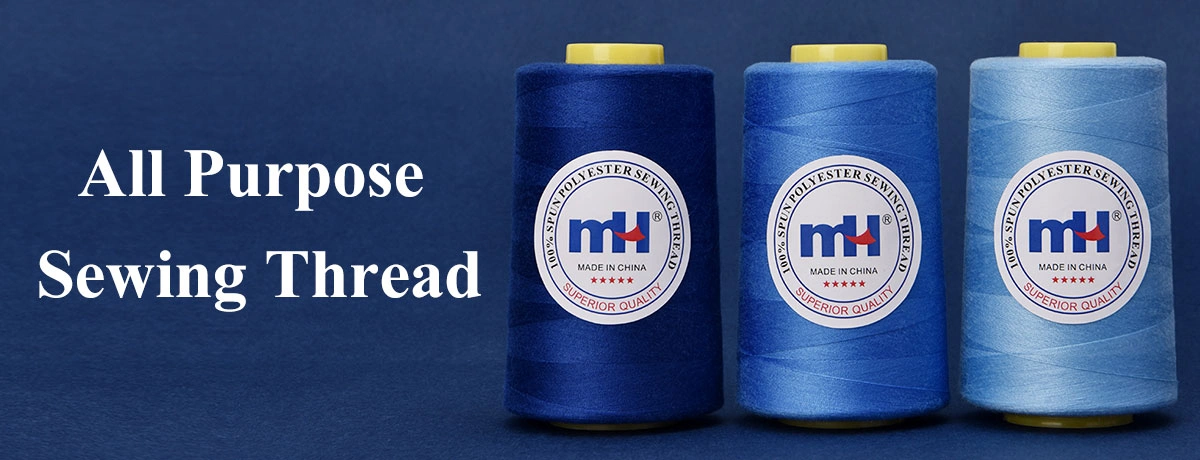
All-purpose polyester thread is a versatile choice that offers strength and a slight stretch, making it suitable for most fabrics. This thread type allows for greater flexibility in your sewing projects, from crafting UV-resistant outdoor items to achieving a smoother finish on sewn items. DIY enthusiasts have praised its durability and versatility, making it a staple for many sewing endeavors.
Cotton Thread
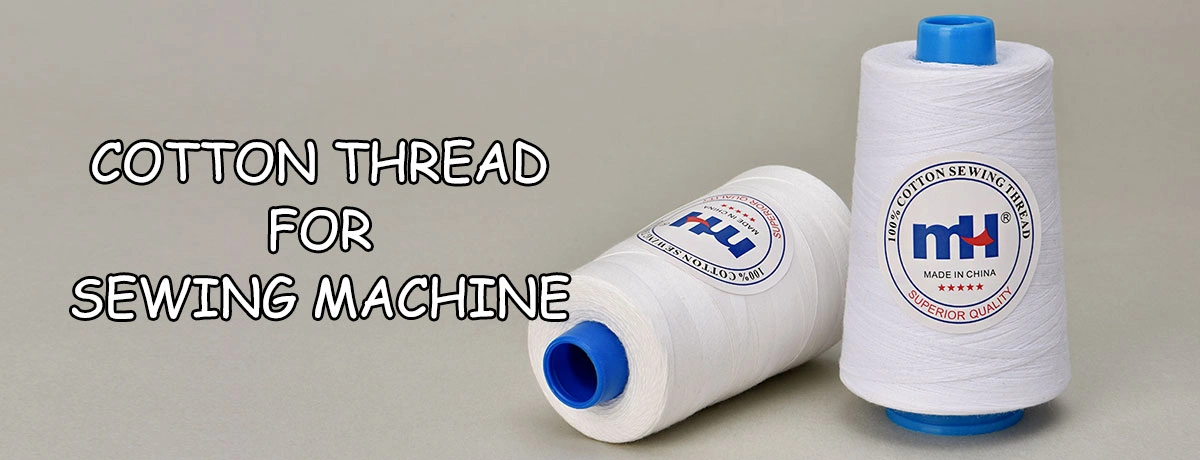
Cotton thread is the go-to for quilting and natural fabrics. Its soft finish and natural fiber properties make it ideal for lightweight fabrics, enhancing the overall texture and durability of the finished product. Whether you’re quilting, stitching garments, or working on other crafts, cotton thread provides excellent stitch quality and blends seamlessly with cotton fabrics.
Silk Thread
Silk thread is renowned for its fine texture and strength, making it perfect for delicate fabrics and creating invisible seams. Professional designers rely on silk thread for high-quality garments, appreciating its precision and refined appearance. Silk thread offers exceptional strength and durability, ensuring your high-end projects maintain their elegance and structure.
Specialty Threads for Unique Projects
Specialty threads can significantly enhance the quality and finish of your sewing projects. From adding shimmer with metallic threads to ensuring durability with heavy-duty options, these threads cater to unique project needs.
Let’s explore some specialty threads that can take your projects to the next level.
Heavy-Duty Thread
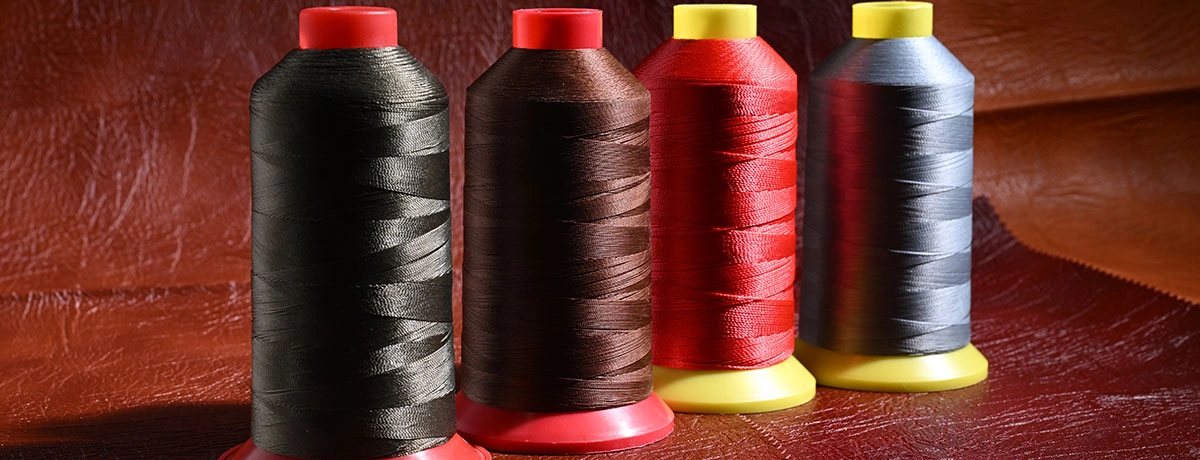
Heavy-duty threads are perfect for sewing through rigid materials, providing superior strength and resilience in seams. They are ideal for projects involving heavier fabrics like canvas and leather, ensuring your stitches withstand significant stress. If you’re working on tough projects, heavy-duty thread is your best bet for durable and reliable seams.
Metallic Thread
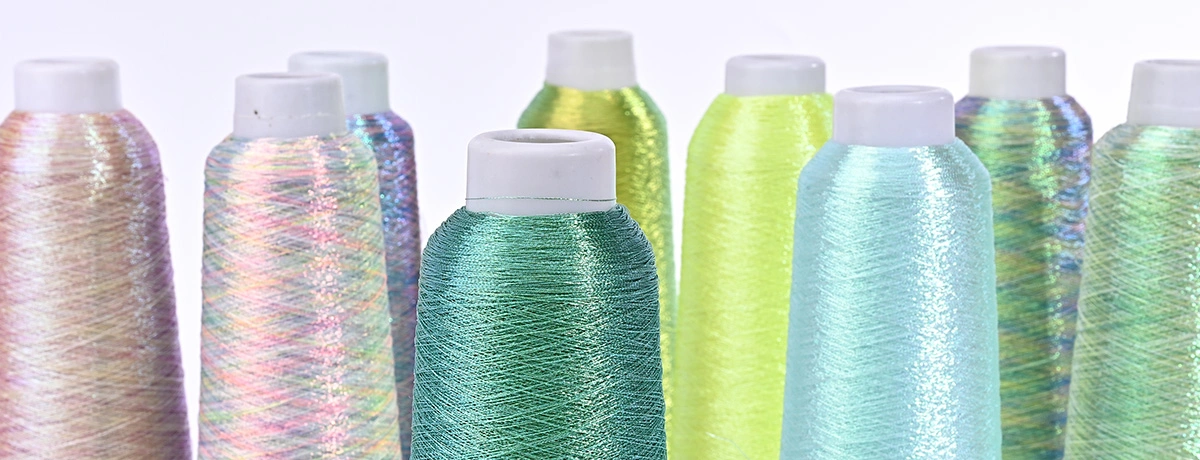
Metallic threads, typically made with a polyester core wrapped in metallic foil, add a striking shine to your projects. They are popular for artistic embellishments and festive decorations, enhancing the visual appeal of embroidery and decorative stitching. Whether you’re adding a sparkling touch to holiday decorations or creating eye-catching designs, metallic threads are a fantastic choice.
Nylon Thread
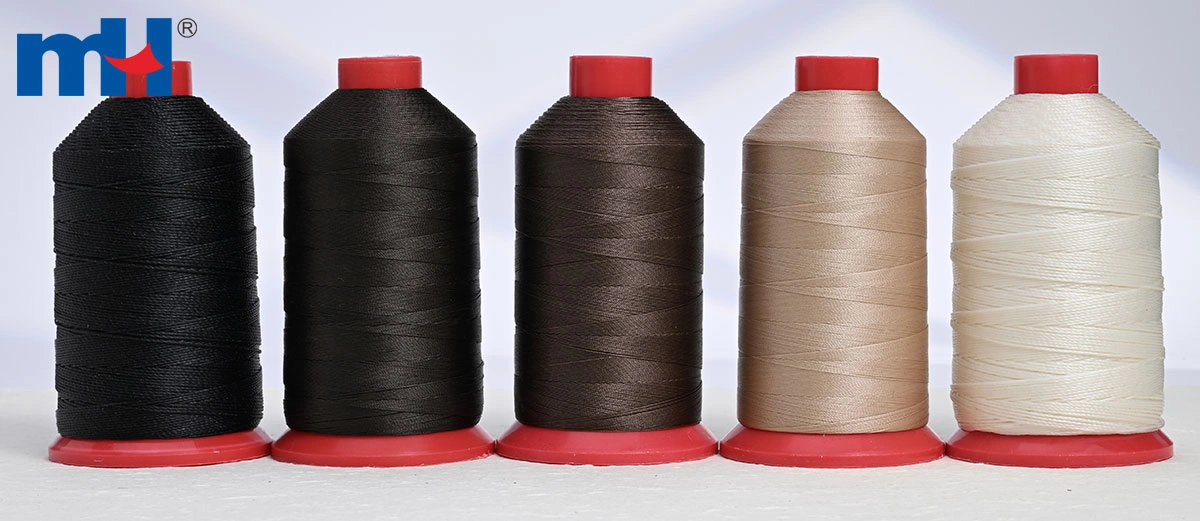
Nylon thread is known for its excellent elasticity, making it suitable for garments that require a bit of give, such as activewear. It’s perfect for lightweight fabrics and projects that need stretch and flexibility, ensuring your sewing projects perform well under movement and stress. Clothes made with nylon thread will benefit from this quality.
Nylon sewing thread is the best choice for any project that demands a durable yet flexible seam.
Optimizing Thread Performance on Your Singer Sewing Machine
Optimizing thread performance on your Singer sewing machine is crucial for achieving the best results. From choosing the right thread to ensuring proper machine maintenance, several factors can enhance your sewing experience.
Let’s delve into some key tips for optimizing thread performance.
Matching Needle Size to Thread
Using the correct needle size for your thread type is essential in preventing thread breakage and ensuring smooth stitching. A tiny needle with an eye approximately 40% larger than the thread’s thickness can minimize breakage and significantly improve your sewing experience; using the wrong needles size can lead to issues.
Matching the needle size to the thread size match ensures optimal performance and reduces common sewing issues.
Regular Maintenance Tips
Regular maintenance of your Singer sewing machine is vital for its longevity and performance. Simple practices include:
-
Cleaning the machine
-
Changing the needle every 6-8 hours of use
-
Keeping it covered when not in use These steps can prevent dust accumulation and lint buildup, ensuring smooth operation and high-quality stitching.
Troubleshooting Common Thread Issues
Common thread issues can disrupt your sewing projects, but routine maintenance and proper techniques can help prevent them. Regular cleaning and oiling of your Singer sewing machine can extend its operational life and improve performance.
Let’s explore some specific troubleshooting tips.
Preventing Thread Breakage
High-quality thread and proper tension adjustment are key to preventing thread breakage. Regularly checking and adjusting your machine’s tension settings can help maintain the quality and efficiency of your sewing projects. By prioritizing these practices, you can reduce the risk of thread breakage and enhance your sewing outcomes.
Avoiding Tangling and Knotting
To avoid tangling and knotting, ensure that the thread is correctly threaded through the machine and the needle. Using a thread spool holder or placing the bobbin and spools vertically can help the thread unwind smoothly and prevent tangling.
Regularly checking tension settings can also help maintain smooth sewing and prevent knots.
Best Practices for Buying and Storing Thread
Proper purchasing and storage strategies are crucial for maintaining thread quality and longevity. Buying thread in bulk can offer cost benefits, while storing it in cool, dry places can prevent damage and maintain its integrity.
Let’s delve into some best practices for buying and storing thread.
Buying in Bulk
Buying thread in bulk is an advantageous option for frequent sewers because:
-
It can significantly reduce costs.
-
It ensures you have a consistent supply on hand.
-
It is a cost-effective and convenient choice for regular sewing projects.
-
Stocking up on thread can save money.
-
It reduces the frequency of reorders.
Proper Storage Conditions
Storing thread in cool, dry places is essential to prevent degradation and maintain its quality over time. Proper storage conditions can prevent damage from heat and moisture, ensuring your thread remains in optimal condition for future projects.
Maintaining thread integrity through suitable storage is crucial for successful sewing outcomes.
Advanced Sewing Techniques with Singer Sewing Machines
Advanced sewing techniques can elevate your projects, and using specialty threads can achieve professional finishes. From using sergers for clean edges to incorporating embroidery threads for intricate designs, these most sewing tips can enhance your hand sewing projects.
Let’s explore some advanced techniques with Singer sewing machines.
Using Sergers for Professional Edges
Sergers are essential tools for achieving precise stitching and professional finishes. Using specialty threads with a serger can elevate the quality of seams and hems, resulting in more polished and durable garments. Whether you’re working with heavy-duty or metallic threads, sergers can help create clean, professional edges.
Incorporating Embroidery Threads
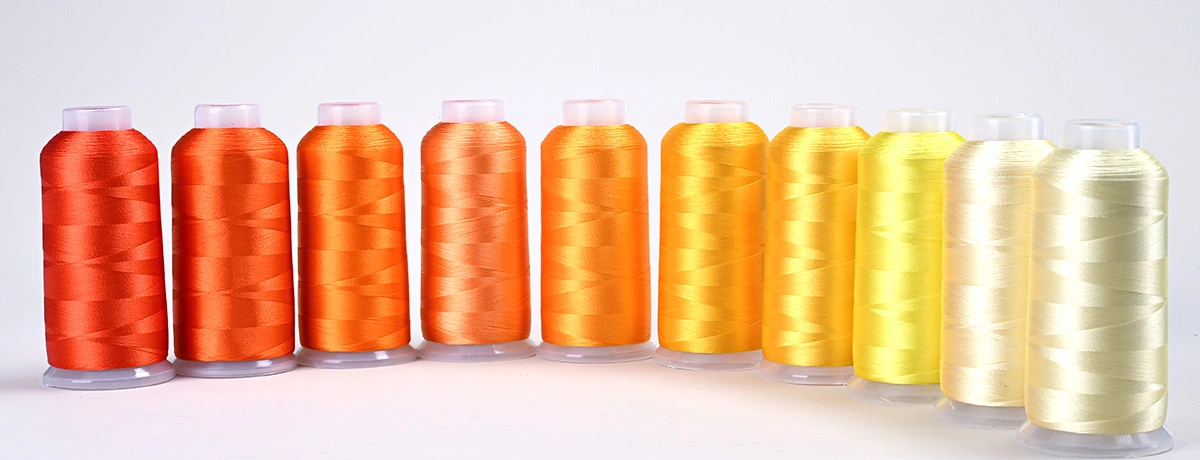
Embroidery threads are crucial for achieving intricate designs and embellishments. High-quality embroidery threads contribute to the durability and appearance of the finished project, making them essential for projects like rustic bags and pillows.
Incorporating these threads can add a unique and artistic touch to your sewing projects.
Case Studies and Testimonials
User feedback provides real-life insights into the effectiveness of different thread types on Singer sewing machines. DIY enthusiasts and professional designers alike have shared their positive experiences, highlighting the benefits of all-purpose polyester and silk threads for various projects.
Let’s dive into some specific testimonials.
DIY Enthusiast Success Story
A DIY enthusiast shared how all-purpose polyester thread significantly improved their sewing projects’ quality and versatility. This thread type’s strength and elasticity allowed them to work with various fabrics seamlessly, enhancing their home décor and craft projects.
The positive impact on project success and performance is evident.
Professional Designer's Experience
A professional designer emphasized the precision and durability of silk thread for high-end garment construction. The fine texture and strength of silk thread allowed them to create flawless seams on delicate fabrics, ensuring the garments maintained their structure and appearance over time. The reliability and refined appearance of silk thread are unmatched.
Summary
Summing up, choosing the right thread for your Singer sewing machine is crucial for achieving high-quality stitching and project success. Whether you opt for all-purpose polyester, cotton, or silk thread, each type has its unique benefits that cater to different fabric types and sewing needs. Optimizing thread performance through proper needle size matching and regular machine maintenance can further enhance your sewing experience.
Incorporating specialty threads for unique projects and utilizing advanced sewing techniques can elevate your projects to a professional level. By following the tips and insights shared in this guide, you can ensure your Singer sewing machine performs at its best, and your sewing projects shine with quality and finesse. Happy sewing!
Frequently Asked Questions
What is the best thread for most sewing projects?
The best thread for most sewing projects is MH all-purpose polyester thread, as its strength and versatility make it ideal for a variety of fabrics.
Which thread should I use for quilting?
Cotton thread is the best choice for quilting as it offers durability and a smooth sewing experience that enhances the final texture of your work.
How can I prevent thread breakage on my Singer sewing machine?
To prevent thread breakage on your Singer sewing machine, use high-quality thread, adjust the tension correctly, and ensure the needle size matches the thread type. These steps will help ensure smoother stitching and minimize issues.
What are the benefits of using silk thread?
Using silk thread enhances the quality of garments due to its fine texture, strength, and elegant appearance, making it perfect for delicate fabrics. This ensures exceptional precision and durability in your sewing projects.
How should I store my sewing thread to maintain its quality?
To maintain the quality of your sewing thread, store it in a cool, dry environment, as this prevents degradation from heat and moisture. Proper storage is essential for ensuring the thread's longevity.
 Whatsapp:
Whatsapp: